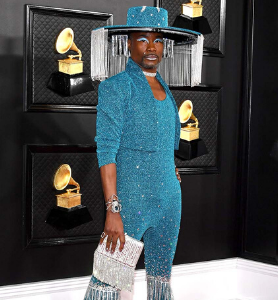Jake Gyllenhaal talks Demolition
With an impressive array of roles under his belt, actor Jake Gyllenhaal has developed an intelligent approach to his career as well as the individual roles in his life.
He understands the sacrifices that are sometimes made for roles - in the last two years he managed to lose 15 kg for a role in Nightcrawler and then immediately transformed his body into a muscle-fuelled fighting machine for Southpaw.
During filming for Southpaw, the 35-year-old actor became aware of Demolition, a film about a wry and intense rumination on grief, loss and life. Directed by Jean-Marc Vallée (who brought us Dallas Buyers Club) and co-starring Naomi Watts, this one is set to be a sell-out.
Gyllenhaal plays Davis Mitchell, a Wall Street banker who loses his wife in a car crash and struggles to feel the heartache he’s ‘supposed’ to feel.
He says about the character 'Davis is a very well-off guy, working in a job I think a lot of people would like to have, living a life a lot of people dream of. But in a lot of ways he really doesn't know where he is because he's made a lot of choices not based on his own instinct.'
It takes the death of his wife for him to fully realise the depth of his misery, and to begin the journey back to his authentic self.
'He's a character that's dealing with the complications of having lost somebody he was in a relationship with that there was a false quality to,' he says. 'In her memory, and out of respect for her, he decides to really ask himself the questions that are important to him.'
We talk to Jake Gyllenhaal about the new film here:
How did this project come to you?
It was all a bit of a whirlwind. I was in the midst of shooting Southpaw and Jean-Marc called me up and said, ‘I'm shooting a movie in a few months, do you want to do it?' My hands were wrapped and I had boxing gloves on, but I'd wanted to work on anything that he was doing, regardless of the material. He's such an interesting director, with such a fantastic point of view. I was really eager to read it, and once I did, I said OK. We basically had two weeks from the wrapping of Southpaw to shoot - it was a really appropriately quick process.
You said you’d do anything with him. What do you like most about Jean-Marc’s work?
I think he really loves the process of making a movie. Very often filmmakers are focusing particularly on the results, anticipating what's going to happen in the future, what they expect to happen. Often it becomes a dizzying task. With Jean-Marc I think he recognises that you're putting a lot of different personalities and types of people together and it becomes this organism as you're making it. I loved that about him and his approach; I think his movies feel like that. There's a presence that you don't often feel in movies.
As an actor, you’re very much known for physical transformations, but this character starts out as an ordinary man and transforms both physically and mentally throughout the movie….
Yes, I think the beautiful thing about this movie is the subtlety of the movement of who he was and how he changes. I had done three or four movies in a row where there was a particularly drastic transformation for the character to even become a character. I love that this was about a guy who changed very little physically, but profoundly. There are not enough movies in the world that are saying to an audience that change happens slowly, and you don't know when it's going to happen, and it's sometimes in small increments. I think that's what's beautiful about this movie and what was fun about creating this character... there's a quietness to him and a real beauty in the respect of that quietness.
You also manage to imbue him with a warmth despite the fact that, on the surface at least, he appears completely devoid of human emotion.
To speak frankly, he's a wealthy white guy, so why feel sorry for him, right? And I understand! I think it's important to recognise that everyone is human, even the people we may resent. Look... it depends on what you value, you know? This guy had massive deficits in his life in an emotional way, and a lot of things he filled in in conventional ways. It's the emotional topography of his world that would brand him really sad, so to me that's what was most interesting. Some of the sadder people in the world are very, very well off, and there is great joy where you wouldn't expect it. Navigating his journey was really about seeing how shallow the world he was living in was. It's not hard when you look at the world of money how there is no real depth in any of those things. He was just lost: the connections he made were not real connections; they were based on working relationships or what he was supposed to do at a certain age.
On the surface, though, some of his behaviour is somewhat sociopathic…
I think grieving is individual; again, convention leads us to a place where we're told we have to have some sort of catharsis. If someone can tell me the exact time the flower blooms, please tell me, I'd love to hear it. Nobody can point that out. To me, no one can tell you when you come to something - things do just happen, and I think we look to movies to give us some behavioural definition. The response he has is human; apathy is equally as human as empathy. I think that's where the confusion lies.
Do you personally think there's a correct way to grieve?
I think there's no correct way to do anything as long as you're not meaningfully hurting someone. We will be hurt and we will hurt people without knowing it, particularly the people we love. I don't believe in rules; I believe in respect.
From the title down, there are a lot of metaphors in this movie, but it manages to avoid cliché. How do you think it finds its balance?
There is a lot of metaphor: When he destroys things, when he demolishes things, he's really trying to work out his inner journey, his inner life. Chris Cooper plays my father-in-law, Phil, and he says to Davis, ‘You have to take things apart to put them back together.’ But in Jean-Marc’s hands it’s beautiful to look at – he’s an extraordinary visualist. He’s figured out a way to constantly create tension in the visual aspect of the movie and, in that way, it's palatable. Always in his films there’s a great sense of hope and compassion, with all of his characters, even in the darkest moments. As long as that is your safety line, as long as that's your main intention, you can always go to places that are off-putting. And ultimately it's something that everybody goes through, will go through, and it's a situation where it's totally relatable. I don't know one person on earth who can't relate at least to the idea of losing someone and the difficulty of coming to terms with that.
You’ve picked such diverse characters over the years with your work; how do you decide what you’re going to take on?
Picking a role is an ephemeral, perpetual question mark. You're trying to listen to your instinct and you have to practice and keep your instinct attuned, so I try and stay close to my instinct and see what it tells me. Oftentimes it's not a blazing yes, sometimes I'm scared of it, sometimes I don't feel right for the part but it's a particular challenge, but all of the characters that I've played are inside of me. They stay there, and sometimes they come out when, you know, I'm ordering coffee or walking onto a plane, which in my case is as comforting as it is disturbing. You birth these characters, and each one has taught me something about the world.
What did Davis teach you about the world?
That feelings are not what you expect them to be, and our expectations usually lead us to places of great disappointment. And to allow yourself to be exactly who you are in the moment that you're in. If you do that, you will find the life you want to live.






